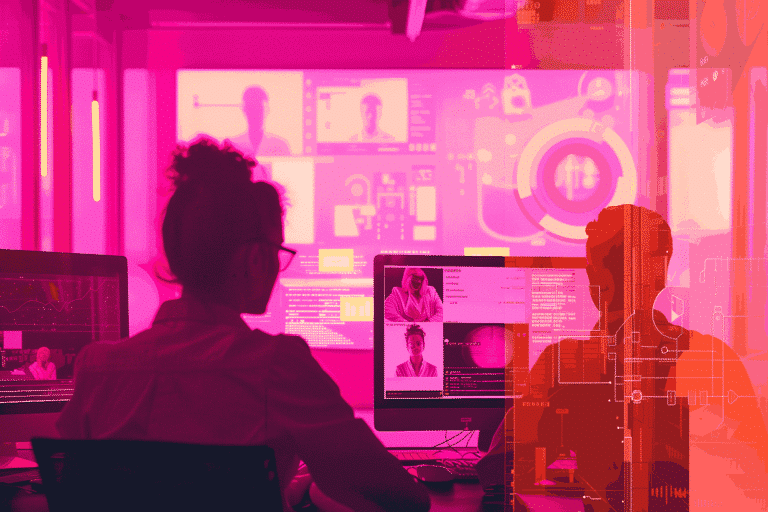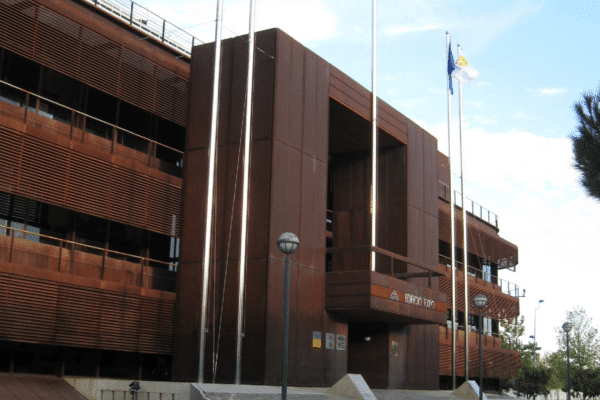AI has become a transformative tool for HR departments, offering innovative solutions to streamline many processes, improve decision-making and optimize workforce management.
Recruiting
AI-powered tools have revolutionized the recruitment process, helping HR professionals identify and attract top talent more efficiently. AI algorithms can help analyze resumes to identify relevant skills, experiences, and qualifications, allowing recruiters to quickly shortlist candidates. For example, an AI-powered recruiting platform can sift through resumes for a software engineering position, highlighting candidates with specific programming languages and project experience as required by the job description.
AI-powered search tools can help search databases of job applicants to identify potential candidates who match specific criteria. Imagine an AI-powered talent acquisition platform that scours professional networking sites, such as LinkedIn, to find candidates with the desired skills and job titles for a marketing manager position.
Employee onboarding:
AI can help personalize the onboarding experience for new employees, ensuring a smoother transition into the organization. An AI-powered onboarding platform can help create customized onboarding plans based on new employees' roles, departments and preferences. For example, an entry-level sales associate can receive a customized onboarding plan that includes training modules on sales techniques, product knowledge and use of CRM software.
AI-powered learning platforms can deliver adaptive training content based on employees' skill levels and learning styles. Consider a scenario where a new employee joins a customer service team. The AI system assesses their existing knowledge and adapts training materials, accordingly, focusing on areas where additional support is needed.
Employee retention:
AI can help HR departments measure employee engagement, predict turnover risks, and implement strategies to improve retention rates. AI-powered survey tools can help collect real-time feedback from employees and analyze their sentiment towards the company and measure overall engagement levels. Imagine an organization conducts monthly surveys using an AI platform that employs natural language processing (NLP) to analyze responses; the HR team can identify trends, such as declining morale in a particular department, and take proactive steps to address concerns.
AI algorithms can help analyze various data points, such as employee performance, seniority and demographics, which can predict turnover risks. An example could be an AI-powered HR dashboard that provides insights into employees who are at high risk of leaving based on historical patterns and current indicators. With this information, HR can implement targeted retention strategies, such as career development opportunities or flexible work arrangements.
Performance evaluation:
AI-powered solutions can help facilitate ongoing feedback, performance appraisals and skills development initiatives. AI-powered feedback platforms enable managers and peers to provide real-time feedback to employees throughout the year. For example, an AI-driven feedback tool integrated into a project management system allows team members to provide constructive comments on tasks and deliverables as they occur, fostering a culture of continuous improvement.
AI algorithms can help HR professionals conduct more objective performance evaluations by analyzing quantifiable metrics and eliminating bias. AI-powered performance evaluation systems can assess sales performance based on objective metrics such as revenue generated, customer satisfaction scores and quota compliance, reducing the influence of subjective factors.
HR Operations:
AI provides the ability to help complete administrative tasks, streamline workflows and improve operational efficiency within HR departments. AI-powered chatbots and virtual assistants can help handle routine employee inquiries about HR policies, benefits and leave requests. If an employee needs to update their personal information in the HR system, instead of submitting a manual request, they interact with an AI chatbot that guides them through the process in real time, saving time and resources.
AI algorithms can help analyze workforce data to forecast future staffing needs, identify skills gaps and optimize resource allocation. Leveraging AI, an HR analytics dashboard could use machine learning models to predict fluctuations in demand for particular jobs based on historical trends, allowing HR teams to proactively hire or train employees to meet future needs.





